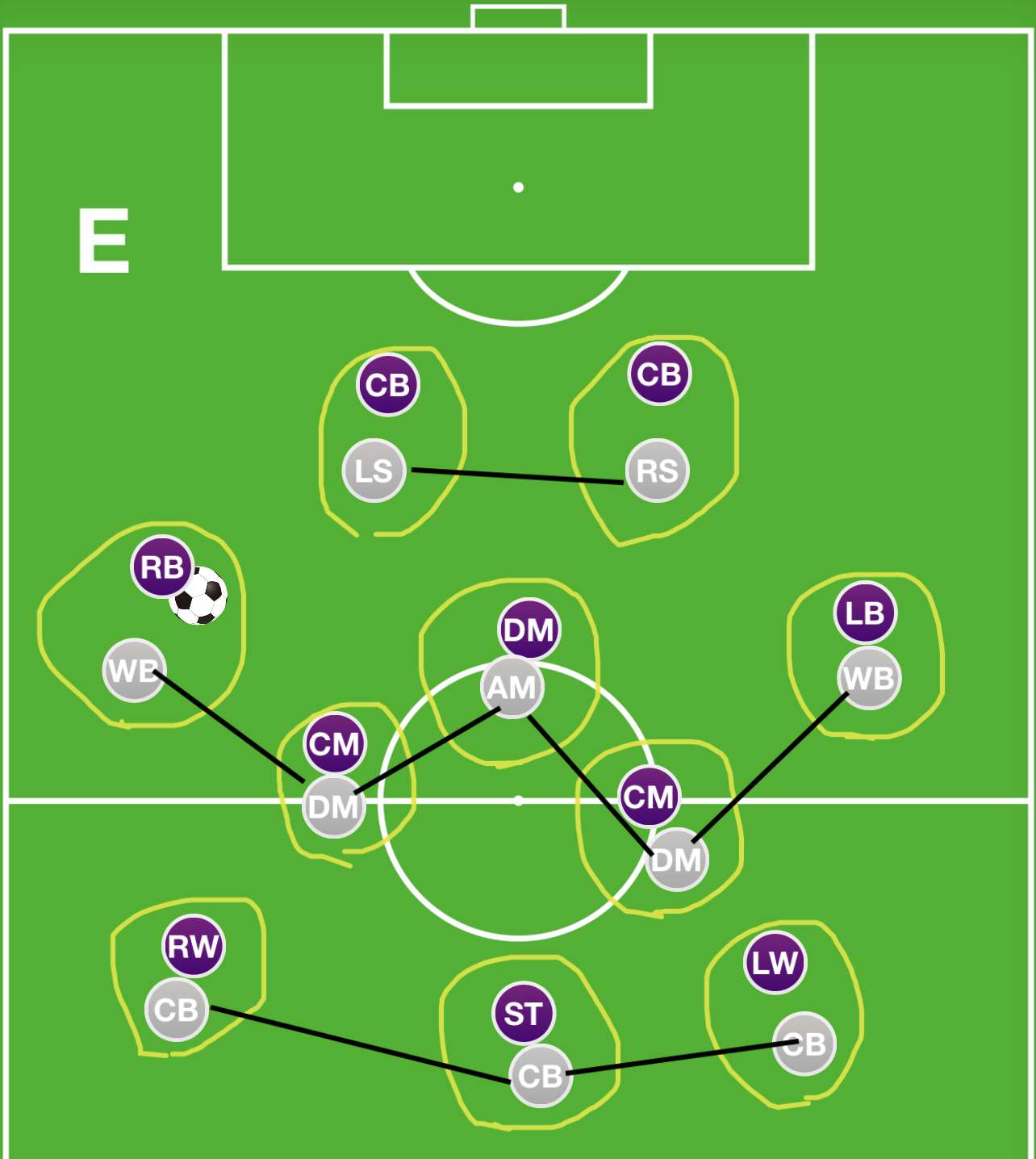Will Resuming Trump Tariffs Cripple Europe's Trade?

Table of Contents
The Impact on Specific European Industries
The reintroduction of Trump tariffs would disproportionately affect several key European industries, triggering significant economic ripples across the continent.
Automotive Sector
The European automotive industry, a cornerstone of several national economies, is particularly vulnerable to reinstated US tariffs on cars. Germany, in particular, with its powerful automakers like Volkswagen, BMW, and Mercedes-Benz, would feel a substantial blow.
- Potential Job Losses: Reinstated tariffs would likely lead to significant job losses across the automotive sector, from manufacturing to ancillary services.
- Price Increases for Consumers: Higher tariffs translate directly to higher prices for European cars in the US market, reducing consumer demand and impacting profitability.
- Reduced Competitiveness: Increased costs make European car manufacturers less competitive against domestic and Asian rivals in the US market.
- Supply Chain Disruptions: The interconnected nature of global supply chains means that tariffs could disrupt the flow of parts and materials, further hindering production and increasing costs.
The impact of US tariffs on cars extends beyond immediate sales figures; it threatens the long-term health and competitiveness of the European automotive industry. The keywords European car manufacturers, US tariffs on cars, and automotive industry impact highlight the core concerns.
Agricultural Sector
European agricultural exports, renowned for their quality, would also face significant headwinds if Trump tariffs were reinstated. Key products like wine, cheese, and olive oil, often commanding premium prices, would be particularly vulnerable.
- Quantifiable Export Losses: Estimates suggest millions of euros in lost export revenue for European farmers, depending on the tariff levels imposed.
- Impact on Farming Communities: Reduced export opportunities could devastate rural communities heavily reliant on agricultural production and exports.
- Potential Retaliatory Measures: The EU might retaliate with its own tariffs on US agricultural goods, escalating the trade conflict and harming both sides.
Keywords such as EU agricultural exports, wine tariffs, cheese tariffs, and impact on farmers effectively capture the essence of this sector's vulnerability.
Steel and Aluminum Industries
The European steel and aluminum industries, already facing challenges from cheaper imports, could face further pressure under renewed Trump tariffs.
- Competitiveness against Cheaper Imports: European producers often face competition from countries with lower labor costs and less stringent environmental regulations. Tariffs exacerbate this disadvantage.
- Potential Factory Closures: Increased costs and reduced competitiveness could lead to factory closures and job losses within the steel and aluminum sectors.
- The Role of National Subsidies: Governments might need to consider increasing subsidies to support struggling domestic producers, potentially distorting the market further.
The keywords steel tariffs, aluminum tariffs, European steel industry, and European aluminum industry pinpoint the specific challenges faced.
Geopolitical Implications of Renewed Tariffs
The economic consequences of renewed Trump tariffs extend far beyond the affected industries, impacting transatlantic relations and global trade dynamics.
Transatlantic Relations
Reinstated tariffs would severely strain EU-US relations, potentially reigniting a trade war and jeopardizing broader geopolitical cooperation.
- Impact on NATO: Increased trade tensions could undermine the transatlantic alliance and weaken cooperation on matters of security and defense.
- Future of the WTO: A renewed trade war could further erode the authority and effectiveness of the World Trade Organization (WTO), already facing challenges in enforcing global trade rules.
- Increased Protectionism Globally: A resurgence of protectionist measures by major economic powers could trigger a domino effect, leading to a more fragmented and less efficient global trading system.
Keywords like EU-US trade relations, transatlantic trade, trade war, and protectionism emphasize the wider political context.
Global Trade Dynamics
Renewed tariffs could reshape global trade flows, potentially accelerating the shift towards Asia and other emerging markets.
- Shifting Trade Flows: European businesses might seek to diversify their export markets, reducing reliance on the US and expanding trade with countries in Asia and elsewhere.
- China's Role in Global Trade: China's growing economic influence could be further enhanced if European businesses turn to Asian markets to compensate for reduced US trade.
Keywords such as global trade, China's role in global trade, and trade diversification capture the evolving global trade landscape.
Potential Mitigation Strategies for Europe
Europe has several options to mitigate the potential negative impacts of renewed Trump tariffs.
Negotiation and Diplomacy
Diplomatic efforts are crucial to de-escalate tensions and find mutually beneficial trade agreements.
- Potential Concessions: The EU might offer concessions on specific trade issues to encourage the US to back down from imposing tariffs.
- Strategies for Negotiating with the US: This involves a combination of strong advocacy, compromise, and exploring alternative trade agreements.
Keywords trade negotiations, EU-US trade agreements, and diplomatic solutions highlight the importance of diplomatic engagement.
Diversification of Trade Partners
Reducing dependence on the US market by expanding trade relations with other countries is a key mitigation strategy.
- Alternative Trade Partners: This could involve strengthening ties with countries in Asia, Africa, Latin America, and other regions.
- Benefits and Challenges: While diversification offers opportunities for growth, it also presents logistical and political challenges.
Keywords trade diversification, alternative trade partners, and reducing US trade dependence underscore this crucial strategy.
Conclusion
The potential impact of resuming Trump tariffs on Europe's trade is significant. Key sectors like automotive, agriculture, and steel/aluminum face severe challenges, potentially leading to job losses, reduced competitiveness, and supply chain disruptions. The geopolitical implications are equally significant, with the potential for a renewed trade war harming transatlantic relations and reshaping global trade dynamics. Mitigation strategies involve a combination of robust diplomatic efforts and diversification of trade partners. The future of European trade hinges on effective responses to the threat of protectionist measures.
The potential impact of resuming Trump tariffs on Europe's trade is significant and warrants close attention. Stay informed about developments in transatlantic trade relations and the potential impact of protectionist measures on your business and the broader European economy. Continue to follow our coverage for updates on the future of Trump tariffs and their effects on European trade.

Featured Posts
-
 Kean Jadi Pahlawan Fiorentina Taklukkan Atalanta 1 0
May 13, 2025
Kean Jadi Pahlawan Fiorentina Taklukkan Atalanta 1 0
May 13, 2025 -
 Nba Draft Lottery Rules Explained Simply
May 13, 2025
Nba Draft Lottery Rules Explained Simply
May 13, 2025 -
 Russias Arctic Naval Power Putins Reawakened Shadow Fleet And Geopolitical Implications
May 13, 2025
Russias Arctic Naval Power Putins Reawakened Shadow Fleet And Geopolitical Implications
May 13, 2025 -
 Duterte Allies Triumph In Philippine Midterm Elections A Setback For Marcos
May 13, 2025
Duterte Allies Triumph In Philippine Midterm Elections A Setback For Marcos
May 13, 2025 -
 Megan Thee Stallion Trial Tory Lanezs Heated Confrontation With His Lawyer
May 13, 2025
Megan Thee Stallion Trial Tory Lanezs Heated Confrontation With His Lawyer
May 13, 2025
